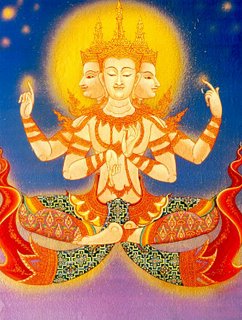Ante Diem V Idus November

Modern Date : November 9th
Ante Diem V Idus November
Fifth Day to the Ides of November
This is one of the dies comitiales when committees of citizens could vote on political or criminal matters.
November is the ninth month (after March) and is a lucky month which is almost free of religious obligation.
Pushkar Fair
Every year, a small town called Pushkar (13 km from Ajmer) comes alive in the joyous festivities, cultural extravaganza and the cattle marketing of the famous Pushkar Fair. This fair is one of the major cultural reflectors of the state of Rajasthan and people from different parts of India gather on the fair ground to participate in the various entertaining events there. Pushkar pulsates with vibrant energy and activity during the fair held on the Kartik Purnima (full moon day) which falls on the month of October or November and usually continues for about five days. This year it starts today.
The Pushkar Lake is considered to be one of the holiest pilgrimage sites in India, the only one in the country associated with Lord Brahma. The place simply teems with the devotees and the holy men or sages in various garbs who come to the temple (Jagat Pita Shri Brahma Mandir) to pray and take a holy dip in the sacred waters of the Pushkar Lake. Apart from the religious rituals and festivities, people participate in a number of cultural and sporting events. The variety of folk dances and songs lend vivid splashes of colour and music to the atmosphere that is already charged with excitement of the camel races and the cattle fair. The bargaining process, which involves a great deal of haggling between the camel traders and the buyers, add to the spirit of the fair.
St. Theodore Tyro
In the Roman Catholic calendar, feast of St. Theodore Tyro, hero of one of the most celebrated martyrdom stories from the persecutions of Diocletian in the early 4th century. Theodore, a Christian officer in the Roman army decades before it was healthy to be one, used the leniency of his commander -- who gave Theodore several chances to renounce his faith -- as the vehicle for glowing speeches that inspired new martyrs in the decades before Constantine the Great made Christianity the state religion of the empire (336). It was reported that when Theodore was finally burned, his soul shot up into the sky in a flash of white light.
Schicksalstag
Schicksalstag (literally day of fate) is a label often used for 9 November due to the special importance of this day in German history. The term was occasionally used by historians and journalists since shortly after World War II, but its current widespread use started with the events of 1989 when virtually all German media picked up the term.
There are five events in German history that are connected to Schicksalstag:
1848: After being arrested in the Vienna revolts, liberal leader Robert Blum is executed. The execution is often seen as a symbolic event for the ultimate failure of Germany's 1848 revolution.
1918: Monarchy in Germany ends when Emperor Wilhelm II is dethroned in the November Revolution.
1923: The Beer Hall Putsch marks the emergence of the Nazi Party as an important player on Germany's political landscape.
1938: In the Kristallnacht, synagogues and Jewish property are burnt and destroyed on a large scale. For many observers, it is the first hint of Germany's radical anti-Jewish policies.
1989: The fall of the Berlin Wall ends German separation and starts a series of events that ultimately lead to German reunification.

